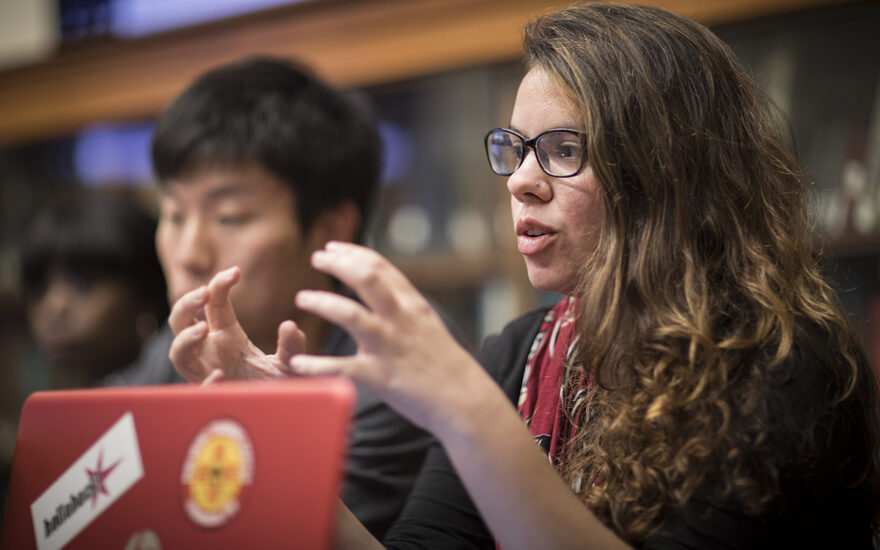
Denise Bebbington
Research Associate Professor

Take the next steps as a catalyst of change
Poverty, gender inequality, forced migration, education and health disparities, and climate change are among the world’s most pressing challenges.
For some, these challenges can be overwhelming. For you, they are a call to action to help build a socially just and sustainable world.
Your time as a master’s degree student in international development at Clark helps you harness your passion for these challenges. Our department faculty and staff provide you with the opportunity and the resources to develop the tools and skills of critical thinking and reflection that you need to thoughtfully and intentionally make a difference in the world.
The world’s most significant challenges are not confined to a single issue or discipline. Neither is our program. Our researchers, educators, and practitioners – experts in a broad range of fields – teach and work collaboratively to improve our world. With their guidance, you’ll better understand the forces shaping today’s development challenges. Experiential learning is integrated throughout our curriculum, providing you with the opportunity to engage with communities and develop hands-on skills.
Learn to address complex societal issues on every level, from a single community to the global policy arena. Gain knowledge about how to work effectively with communities in ways that are inclusive and attentive to sustainability. Acquire skills related to data collection and management, monitoring and evaluation, stakeholder analysis, and project management and implementation.
Our degrees inspire you to develop equitable solutions to urgent social, political, and ecological challenges. Through our program, students are equipped to build a more just and sustainable world.
| Required International Development Courses |
|
| Sustainability and Institutional Change (2 units) |
|
| Fundamental Skills (2 units) |
|
| Methods of Inquiry and Subject Matter Electives (2-3 units) |
|
| Intersectional Analysis (1 unit) |
|
| Required Common Seminar (0.5 unit) |
|
| Experiential Learning and Inquiry (1-3 units) |
|
10-unit track completed in three semesters (Fall or Spring start)
12-unit research track completed in four semesters, with students conducting primary research in the summer between their two years of study (Fall start only)
12-unit practice track completed in four semesters, with students engaging in a Global Learning Collaborative, either domestically or internationally (Fall start only)
Our International Development graduates craft policy, design and manage interventions to increase social and economic well-being, and monitor and measure intervention outcomes to promote continuous learning. They serve in a range of professional capacities:

The people in International/Community Development are amazing. SSJ has taught me how to unravel the complexities within Development, and how to measure and manage socially oriented projects.
Foreign Service Officer
U.S. State Department
The M.A. in International Development program leverages its faculty’s vast field experience in North America, Africa, Asia, Latin America, and the Caribbean and their dedication to fostering environmental sustainability, social justice, and economic well-being in communities of all sizes around the world. Faculty are intellectually and professionally active. They are continuously engaged in research projects in the United States and around the world, consulting contracts for federal and local government, and serving on the boards of local, national and global non-profits and foundations.
Relevant. Challenging. Transformative.

Denise Bebbington
Research Associate Professor

David Bell
Professor of Practice

Nigel Brissett
Associate Professor

Cynthia Caron
Associate Professor

Anita Fábos
Professor

Jude Fernando
Associate Professor

Ellen Foley
Professor

Ken MacLean
Associate Professor